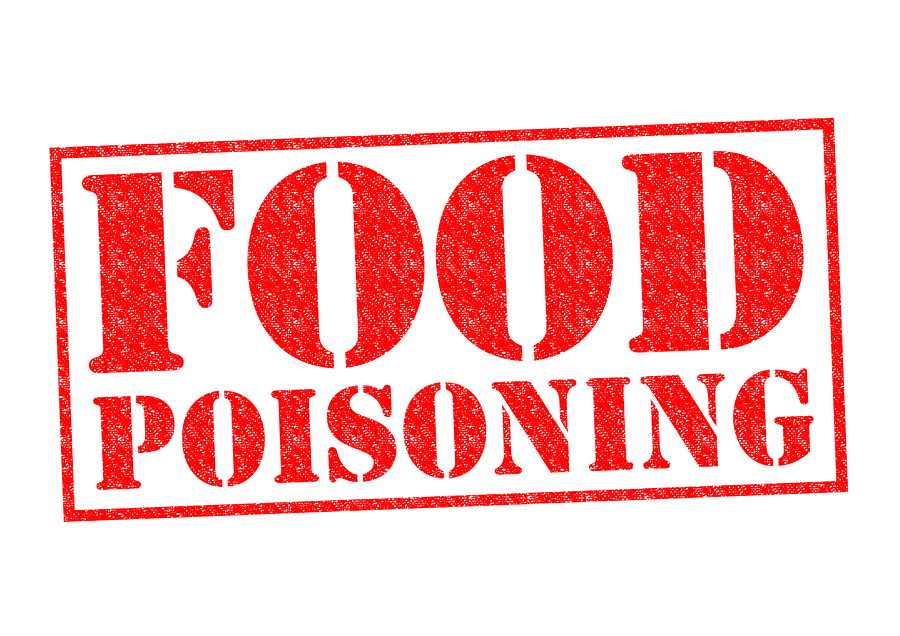



Illnesses that are caused by food are known as food poisoning. It can be viral or bacterial, or caused by a parasite in food. Also, food can be contaminated during the processing if it’s handled with unwashed hands or cooked with a rather low temperature. Food poisoning affect millions of people all over the world each year. It is estimated that about one in six Americans get food poisoning. Food poisoning may or may not have any symptoms, but most often causes diarrhea and dehydration. This can sometimes be fatal if it’s severe and untreated.
If you are wondering “how long does food poisoning take to kick in”, the answer depends on the contaminant in the food. Most often, food poisoning symptoms begin around two to six hours after eating the offending food. Some people get sick within minutes of eating, and some get sick a few days after eating bad food.
There are certain types of food poisoning that may kick in right after eating or within a few hours of eating:
Slow onset toxin food poisoning usually comes on within 12 hours to up to a day after ingestion:
People who got food poisoning keep wonder “how long does food poisoning last?” It is understandable since the illness can often cause severe symptoms which are not so good to company with. If the case is mild, it should only last one or two days and go away on its own. If you experience symptoms for longer than a few days, you should contact your doctor. And one cause of the prolonged food poisoning is the Cyclospora parasite, which can cause diarrhea that lasts up to a few weeks.
Mild food poisoning usually doesn’t need medical attention. If you have any of the following symptoms, you should see a doctor:
Food poisoning that happens in restaurants needs to be reported to the local health department. They will send out a health officer to investigate the facility and check for cleanliness and healthy food preparation practices to prevent it from happening again.
If your food poisoning is severe and lasts longer than two days, you need to contact a doctor. Treatment is based on the type of bacteria, virus, or parasite that caused the illness. However, as we mentioned above, if the food poisoning is mild, you can follow these suggestions to treat it at home:
Dehydration from food poisoning raises the risk of complications, it can also make you feel sicker. Vomiting and diarrhea can deplete your body’s fluid levels very quickly. Take small sips of water often, especially right after a loose bowel movement or vomiting.
Electrolyte replacement solutions are available over-the-counter at the drug store and can help to replace the potassium, sodium, and sugar lost during mild dehydration. Some are premixed in bottles and some are in pouches that can be mixed with water. If you have a health condition, check with your doctor before using them.
If you have a bacterial type of food poisoning, your doctor will give you antibiotics to help clear up the infection. Pregnant women need immediate antibiotic treatment because the infection may affect the growing fetus. If you have listeria, you will need to be treated with intravenous antibiotics.
If you can manage your symptoms, just know that most cases of food poisoning resolve in 48 hours. These home tips can help you feel better sooner:
Besides these caring methods, here are some effective home remedies you can try: 10 Work-Fast Home Remedies for Food Poisoning. And during post food poisoning stage, you should keep in mind that there’re some food you can eat, yet some you can’t. To help you clear the clouds, here’s What to Eat after Food Poisoning.
Many people ask if they have eaten contaminated food, can the doctor pump it out to prevent food poisoning or heal the illness. Unfortunately, the answer is “no.” Stomach pumping is used for the accidental ingestion of a poisonous substance such as medications or chemical to prevent liver damage. Food poisoning is an illness, not an actual poisoning, with no adverse effects to the liver. Once the food is ingested, the illness needs to either run its course or be treated with an antibiotic. The diarrhea and vomiting that go along with food poisoning are the body’s natural ways of expelling the offending substance.